News
- [March 2021]: Ph.D. students, Xudong Qin and Jiangong Chen received IEEE INFOCOM 2021 Student Conference Grant. Congratulations to Xudong and Jiangong!
- [February 2021]: Dr. Bin Li was awarded a Distinguished Member of the INFOCOM 2021 Technical Program Committee.
- [December 2020]: Dr. Bin Li will serve as the TPC Vice-Chair for Submissions in WiOpt 2021.
- [October 2020]: Dr. Bin Li was elevated to a senior member of the IEEE.
- [October 2020]: Dr. Bin Li served as a mentor for N2Women virtual event in ACM MobiHoc 2020 conference.
- [September 2020]: Dr. Bin Li was invited to be a guest in The Peggy Smedley Show to introduce mixed reality technology and its application in firefighter training.
- [September 2020]: Dr. Bin Li co-organized URI second Immerse-a-thon event for exploring virtual/augmented applications beyond gaming, and delivered the talk on the virtual/augmented reality technology.
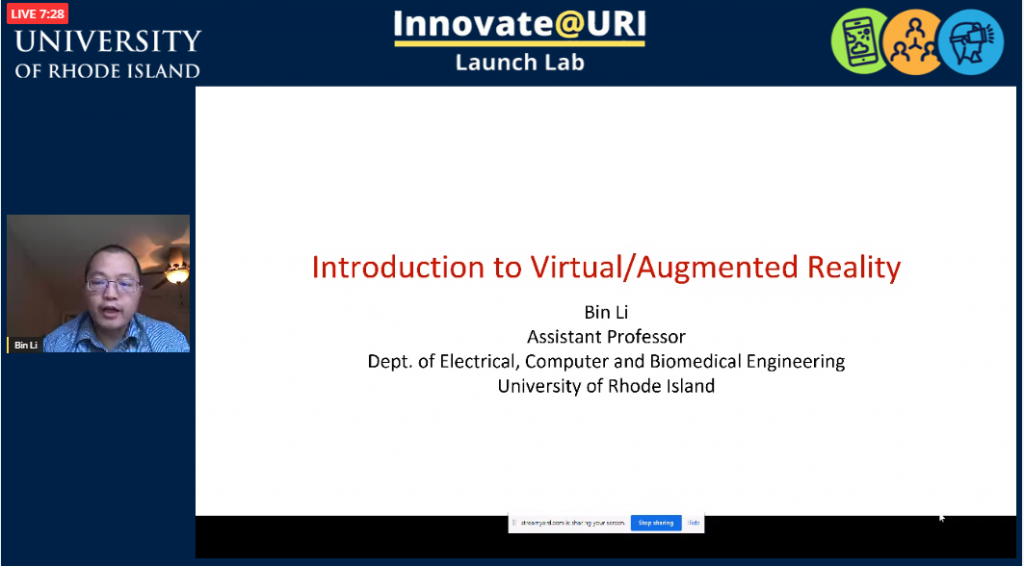
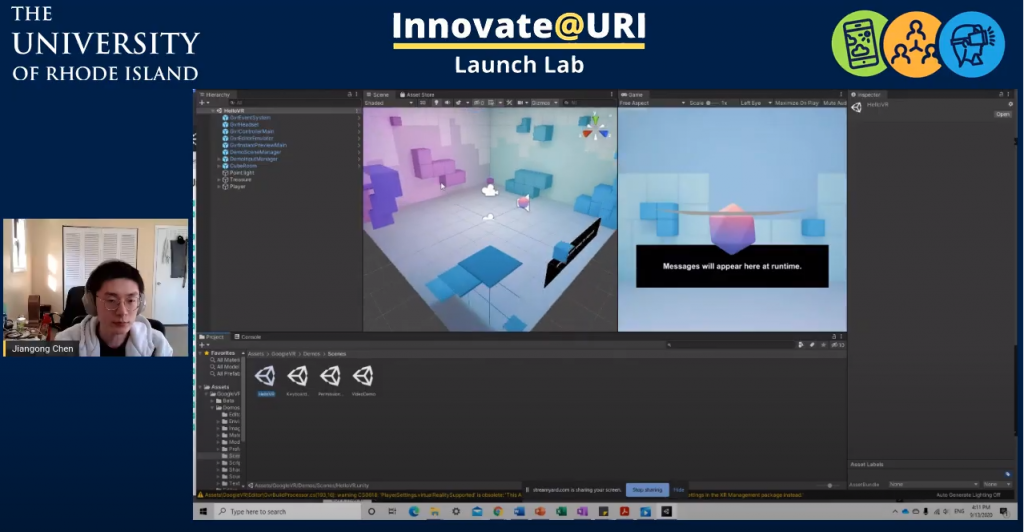
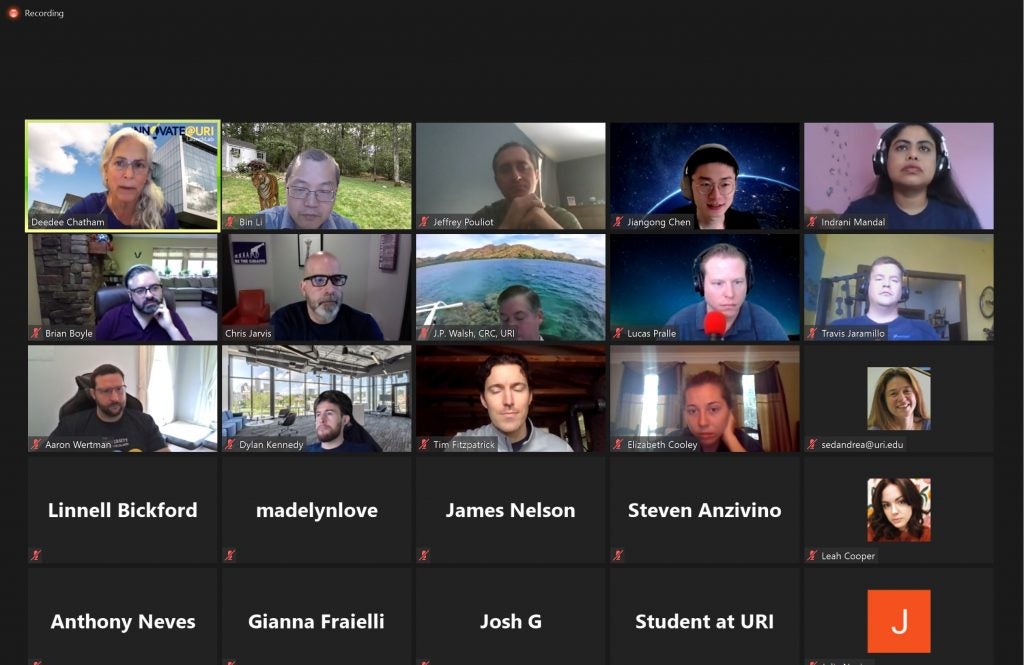
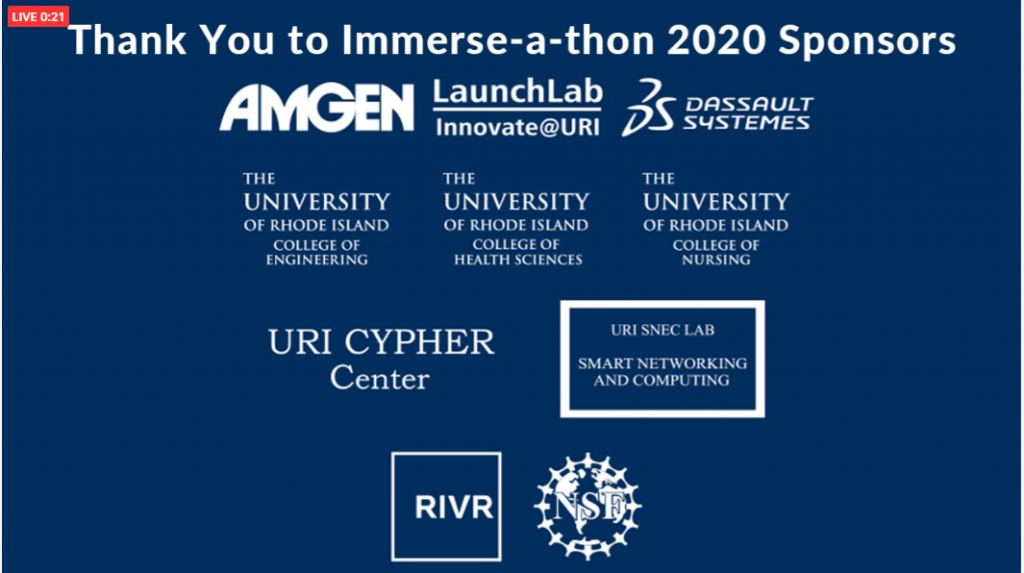
- [September 2020]: Dr. Bin Li was invited to be a panelist for the panel on AR/VR/XR over wireless networks: challenges and opportunities in the 21st IEEE International Symposium on a World of Wireless, Mobile and Multimedia Networks (IEEE WOWMOM 2020).
- [March 2020]: Dr. Bin Li received the prestigious NSF CAREER Award to develop joint communication, computation, and learning algorithms for wireless collaborative mixed reality networks. Thanks NSF!
- [February 2020]: Dr. Bin Li received the prestigious Google Faculty Research Award . The news appeared in Google AI Blog. Thanks Google!
- [February 2020]: PhD students, Xudong Qin and Jiangong Chen won Outstanding Poster Awards in ECBE Graduate Research Showcase and Awards Day 2020 for their projects “On the Efficiency of Threshold-Based Selfish Offloading in Large-Scale Mobile Edge Computing” (Second Place), and “Predictive Transmission for 360-Degree Video Streaming” (Third Place), respectively. Congratulations to Xudong and Jiangong!
- [March 2019]: Dr. Bin Li’s group demonstrated various virtual/augmented reality applications for local residents and K-12 students in URI Brain Fair. Thanks Xiangqi, Xudong, and Noah. The news appeared in URI College of Engineering website
- [March 2019]: Dr. Bin Li organized URI first Immerse-a-thon event for exploring virtual/augmented applications beyond gaming. Thanks Deedee Chatham (director of Entrepreneurship, Innovation and Undergraduate Research at URI) for providing logistics support and promoting this event as well as all speakers, mentors, and judges. The news appeared in URI College of Engineering website and Rhode Island Inno
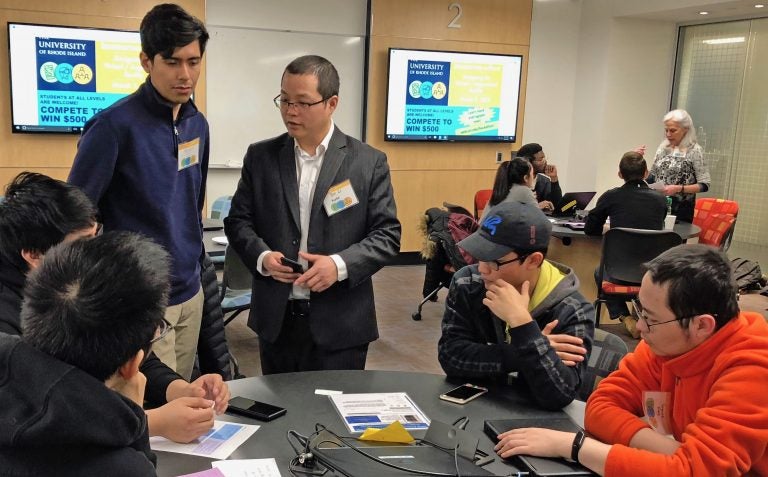
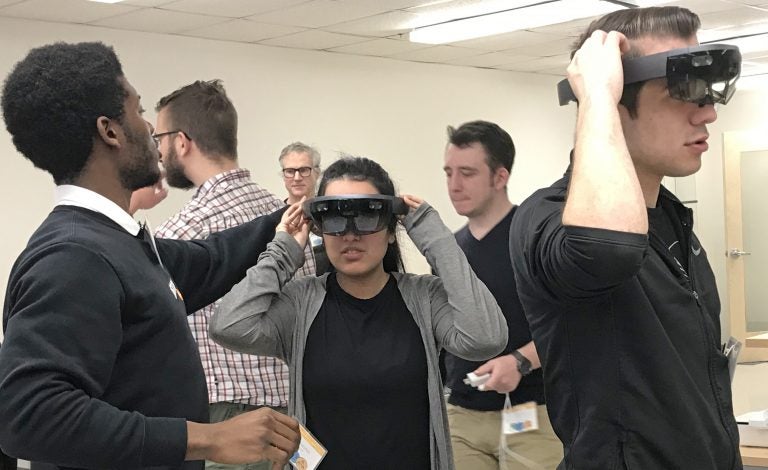
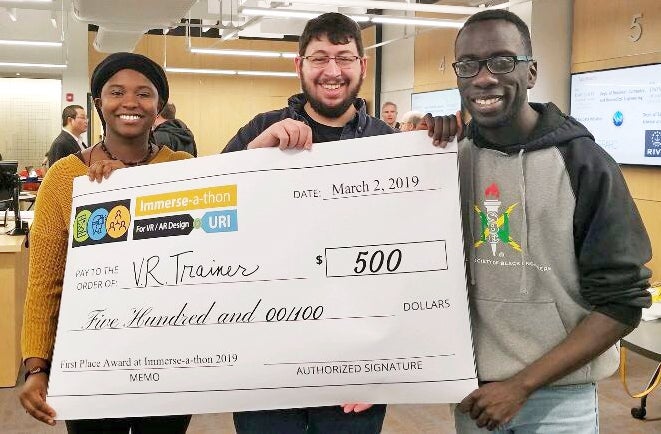
- [February 2019]: PhD students, Xiangqi Kong and Xudong Qin won Outstanding Poster Awards (Third Place) in ECBE Graduate Research Showcase and Awards Day 2019 for their projects “Dynamic Loading for Wireless Virtual Reality”, and “Low-Complexity Joint Offloading and Scheduling for Parallel Computing with Deadlines”, respectively. Congratulations to Xiangqi and Xudong!
- [September 2018]: Graduate students, Noah Johnson, Salvatore (Turi) Latella, and Xiangqi Kong won Second Prize in HealthHacks RI 2018 for their project “Virtual Reality Aided Panic Attack Management”. Congratulations to Noah, Turi, and Xiangqi!
- [August 2018]: Master student, Salvatore (Turi) Latella, received the prestigious Department of Defense Science, Math and Research for Transformation (SMART) Scholarship with acceptance rate of 14%. Congratulations to Turi!
- [August 2018]: Computer Engineering students, Christian D’Ovidio, Daniel Williams, James Kiessling, won the Silver Award in Americas and Award of Excellence in Global Grand Final Competition at the 2018 InnovateFPGA Global Design Contest under Dr. J.C. Lo and Dr. Bin Li’s supervision for their project “Quantum Gate Emulator”. Congratulations to Christian, Daniel and James!
- [July 2018]: Dr. Bin Li received the NSF grant to develop adaptive and efficient algorithms for wireless computing networks. Thanks NSF!
- [June 2018]: Dr. Bin Li and his Ph.D. student, Xiangqi Kong, received ACM MobiHoc 2018 Best Poster Award. Congratulations to Xiangqi!
- [June 2018]: Ph.D. student, Xiangqi Kong, received NSF/ACM MobiHoc 2018 Student Travel Grant. Congratulations to Xiangqi!
- [July 2017]: Dr. Bin Li received the NSF grant to develop algorithms with traffic-insensitive performance in wireless networks. Thanks NSF!
